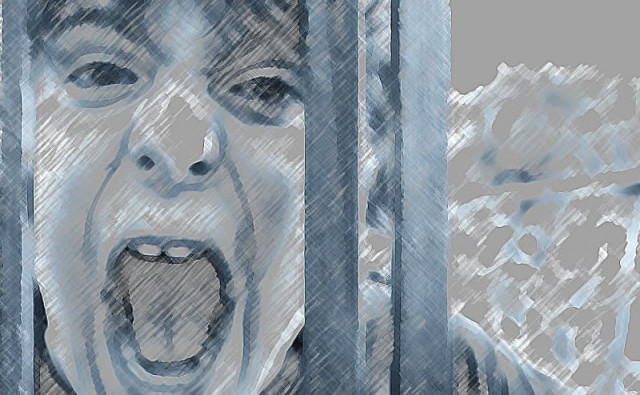World Day for prevention of child abuse: Psychological scars that seldom heal
Amidst a steady rise in cases of child sexual abuse, there is a clear lack of political will to solve the problem

World Day for prevention of child abuse: Psychological scars that seldom heal
It has been almost three decades, but the psychological scar hasn’t healed. S* breaks down while recalling what she went through as a child. “I still see the men who did it at family gatherings. I feel betrayed by my own family,” says S, now in her thirties. She says there is no government support or professional help out there for victims of child sexual abuse (CSA).
She was three-year old when her father’s cousin, who was in his early twenties, would come over. “He used the excuse of playing hide and seek. He would take me to dark corners. I was too young to register what was going on and too scared to tell anyone,” she recalls. When she turned seven, another cousin of her father’s did the same. “It went on for a while. Now when I look back, I feel as if they know who to pick on. It stirred negative emotions in me that made me collapse much later”.

She was too ashamed and too scared to share her predicament with anyone in the family. She went into depression. “I used to fake stomach cramps to get hospitalised in an attempt to get a chance to overdose on medication and die,” she says. Eventually she was advised to visit a psychiatrist who treated her for years. “I’m 31 now, but psychological scar hasn’t healed. I still sit down and cry. I still see those men. My father had confronted them at the time, but now he pretends it never happened,” she says.
On the eve of World Day for Prevention of Child Abuse and Violence against Children, Sahil, an NGO working for children’s rights, unveiled its report, titled ‘Cruel Number’, Tuesday evening and its findings are worrisome, to say the least.
The report states that on an average, five to six children are abused in Pakistan daily. Of them, 71% are girls and 29% are boys. The major crime category is rape/sodomy, which includes gang rape and gang sodomy. Between 2007 and 2011, as many as 4,201 cases had been recorded and 1,028 cases of molestation and attempt of rape/sodomy were reported. Many more cases might have gone unreported.
The report shows a steady rise in case of sexual offence against children over the last five years. Of these, 45% were cases of abduction. Some 573 victims were murdered after sexual assault, and a total of 23,884 abusers are on record. Alarmingly, 68% of the offenders are acquaintances and only 18% are strangers.
The most vulnerable age group among both girls and boys is 11-I5 years. Sixty-five per cent cases were reported from rural areas and 35% were from urban areas.
As many as 7,384 cases were reported from Punjab, followed by 2,339 from Sindh, 501 from the Islamabad Capital Territory, 281 from Khyber-Pakhtunkhwa, 177 from Balochistan, 41 from Azad Jammu and Kashmir and only three cases were reported from Gilgit-Baltistan.
Social Activist Dr Rakshinda Parveen says there has never been a proper government structure to try and stop CSA in Pakistan. “All forms of abuse are bad, but child abuse is most damaging,” she says, adding that it is not that the government has failed to solve this sensitive social issue. “The government never tried!”
Parveen says NGOs are dealing with the issue but in a half-hearted manner. “Seminars are not going to solve this. The issue needs sincere ownership,” she adds.
Dr Rizwan Taj, a psychiatrist at PIMS, says there has been 20-30% increase in CSA patients over the past decade. “CSA patients are damaged for life and develop psychological disorders such as phobias and tendency for drug abuse. Most patients develop personality disorders and have trust issues,” he says.
According to UNICEF Pakistan, as a signatory to the UNCRC, Pakistan is obliged to ensure that all children are protected from violence, including sexual violence, neglect and exploitation.
CSA is recognised as a form of violence in the clauses of the Pakistan Penal Code (PPC) 1860. Similarly, child molestation is also cognizable offence under the Anti-Terrorism Act 1997. However, the current legal underpinnings are inadequate for administrative action against child abusers. There are no explicitly formulated, specialised laws for the prevention of CSA in Pakistan.
Published in The Express Tribune, November 20th, 2014.



















COMMENTS
Comments are moderated and generally will be posted if they are on-topic and not abusive.
For more information, please see our Comments FAQ